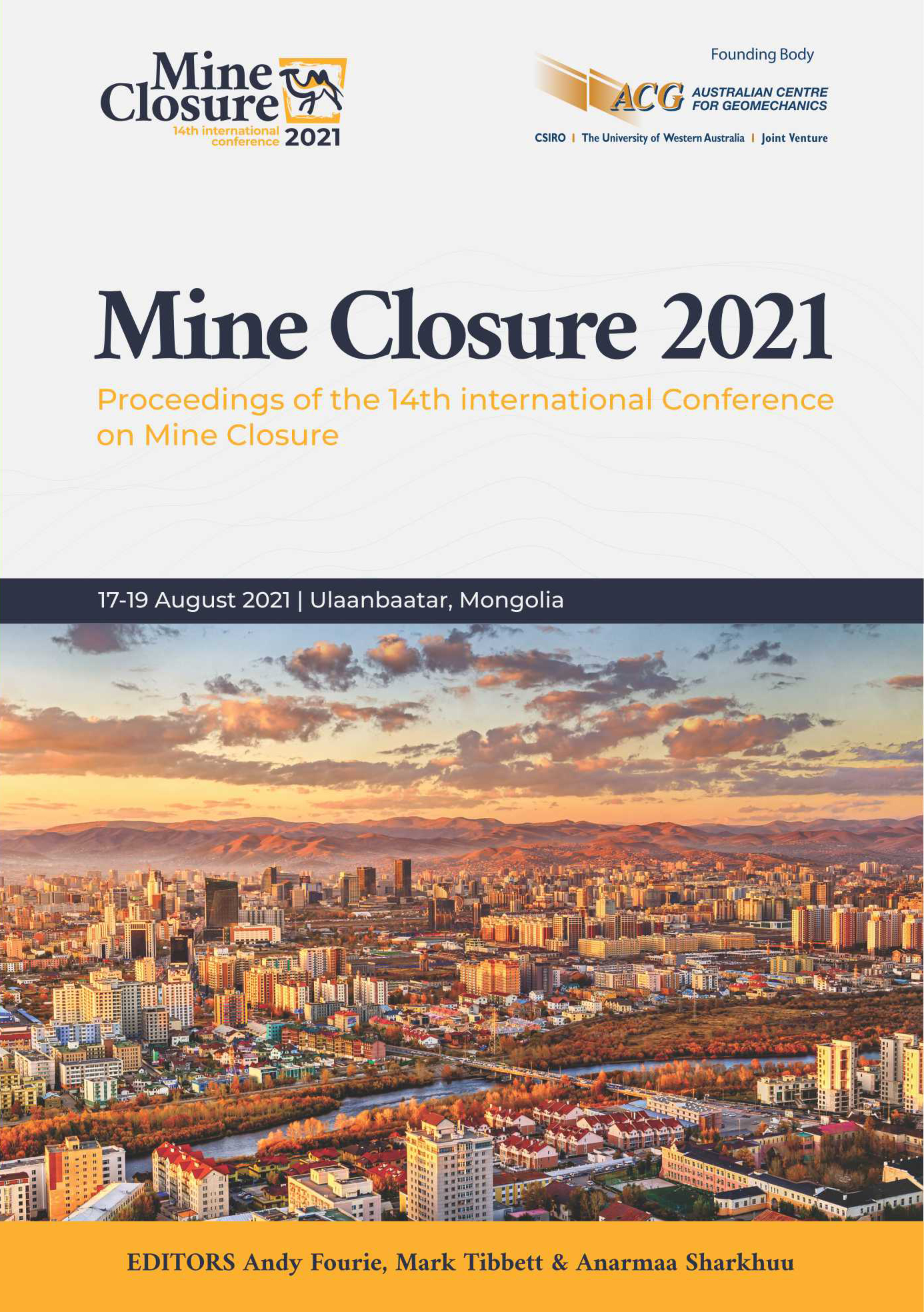Treatment of high sulfate, low metal leachate using an engineered passive system

|
Authors: Robinson, J; Andrews, I; Dodd, J; Josselyn, L; Gusek, J; Clarke, E Paper is not available for download Contact Us |
DOI https://doi.org/10.36487/ACG_repo/2152_07
Cite As:
Robinson, J, Andrews, I, Dodd, J, Josselyn, L, Gusek, J & Clarke, E 2021, 'Treatment of high sulfate, low metal leachate using an engineered passive system ', in AB Fourie, M Tibbett & A Sharkuu (eds), Mine Closure 2021: Proceedings of the 14th International Conference on Mine Closure, QMC Group, Ulaanbaatar, https://doi.org/10.36487/ACG_repo/2152_07
Abstract:
A passive sulfate reduction system with iron scrubbers was identified as the most viable option for treatment of elevated sulfate within leachate from an old landfill and bench scale trials were established in 2019 at the site to test the theory. This included the use of Biochemical Reactor (BCR) with different proportions of wood chips, straw, manure, limestone, and biochar to culture sulfate reducing bacteria. In addition, the concept of using alcohol to fee the bacteria was trialled, using Fix Bed Anaerobic Bioreactor (FBAR), where alcohol was added to enhance the sulfate reducer activity. In total three BCRs and two FBARs were set up for this stage of the assessment. The resulting treated leachate was then passed through different iron media types (haematite, magnetite and iron filings) to remove sulfide generated by the bacteria, with an aerobic wetland used to polish the effluent. The success of the bench scale project led to a pilot scale system being constructed and monitored in Spring 2020, the results of which confirm the success of the bench scale testing and provides useful insights into management of the system particular in winter months. The COVID crises has had its impact, but the system has operated continuously and will run through 2021.
© Copyright 2025, Australian Centre for Geomechanics (ACG), The University of Western Australia. All rights reserved.
View copyright/legal information
Please direct any queries or error reports to repository-acg@uwa.edu.au
View copyright/legal information
Please direct any queries or error reports to repository-acg@uwa.edu.au